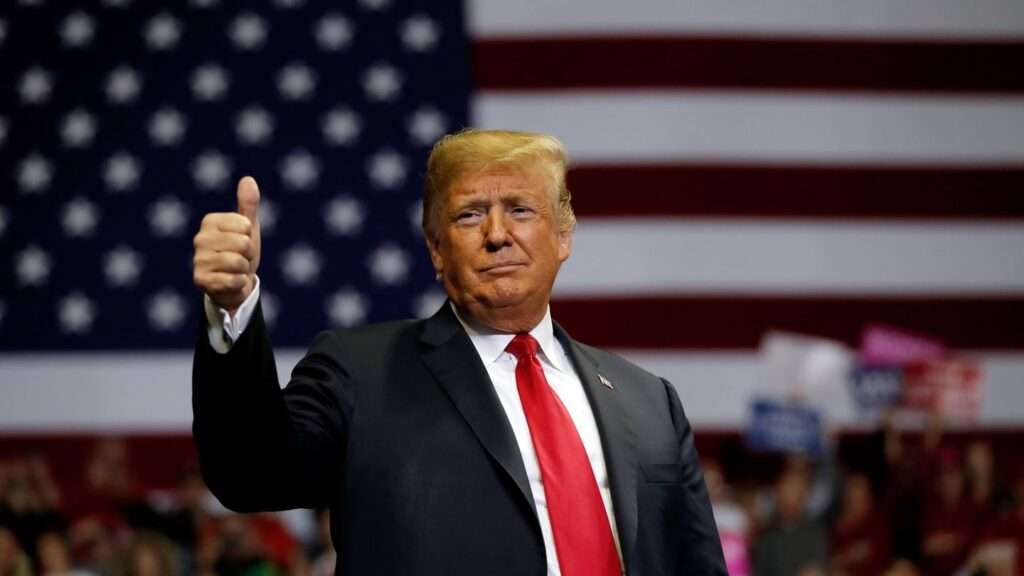The prospect of a second Donald Trump presidency has the tech industry bracing for possible shifts across regulations, tariffs, antitrust policies, and immigration reforms. With a pro-business stance and a history of scrutinizing big tech, Trump’s return to office may herald unique challenges and opportunities for major technology companies. This article examines potential impacts on areas like AI regulation, visa policies, tariffs, and mergers, offering insights into how these changes could reshape the landscape for tech giants.
Impact on AI Regulation and Innovation
Under a second Trump term, AI regulation may pivot from Biden-era initiatives toward a more hands-off approach. Trump has previously voiced skepticism about regulating AI, favoring business-friendly policies. This stance could incentivize innovation, though it also raises concerns about ethical implications and workforce displacement. Proponents argue that lighter regulation can lead to accelerated development, while critics worry about unchecked AI posing societal risks.
Potential Shifts in Antitrust Enforcement
Antitrust has been a contentious issue within the tech industry, and a second Trump presidency could alter the landscape. Unlike the Biden administration, Trump’s approach to antitrust may be less aggressive, given his pro-business views. Many current cases, like those involving Google and Apple, may continue unaffected due to judicial independence. However, Trump has indicated an interest in controlling tech monopolies, suggesting a targeted focus on companies perceived as hostile.
Implications of Tariff Policies for Tech Giants
Trump’s trade policies, including tariffs, could significantly impact tech companies that rely on global supply chains. With China as a major trade partner, increased tariffs could drive up production costs for products like smartphones and laptops. Companies such as Apple may be forced to explore alternative sourcing or pass additional costs onto consumers. While some analysts believe these tariffs might be used as a bargaining chip, their implementation could lead to widespread disruptions.
Immigration Policies and H-1B Visas
Immigration is another area likely to see significant changes. Trump’s previous stance on H-1B visas impacted tech companies relying on skilled foreign workers, a trend that may continue. By restricting these visas, companies could face staffing shortages, which may hinder technological advancements and innovation. The administration’s focus on “America First” policies may lead to stricter visa regulations, further complicating hiring for tech firms in the AI and engineering sectors.
Mergers and Acquisitions
Trump’s regulatory approach to mergers and acquisitions (M&A) may create a favorable environment for tech giants seeking to expand through acquisitions. During his first term, Trump’s administration took a relatively hands-off stance on M&A, especially in industries that were not politically sensitive. However, large tech mergers may still face scrutiny, especially if Trump perceives them as contributing to monopolistic power.
How Trump’s Cabinet Choices Could Influence Tech Policy
Trump’s cabinet selection could significantly impact tech policy. With figures like Elon Musk potentially influencing policy, the administration may favor deregulatory measures in tech sectors aligned with Musk’s interests, such as space technology and AI. Conversely, appointments of hardliners on issues like antitrust could signal a more aggressive stance against companies like Google and Meta.
Impact of Social Media Regulation
Trump has been vocal about regulating social media companies, especially platforms like Twitter and Meta. Proposed policies could limit these companies’ ability to moderate content, potentially creating a more permissive environment for free speech. However, this could also lead to platforms becoming more polarized, with the potential for increased misinformation and abuse.
Potential Benefits for Specific Tech Sectors
While some tech sectors may face challenges, others could benefit. Defense tech, energy tech, and space exploration firms could see support under Trump’s administration. Companies involved in national security, such as those providing AI for defense purposes, might benefit from increased government contracts and funding, driven by Trump’s focus on national security.
Table of Potential Impacts on Major Tech Players
| Company | Potential Impact Area | Expected Outcome under Trump |
|---|---|---|
| Antitrust, Social Media Regulation | Potential prosecution and tighter regulations | |
| Apple | Tariffs, Manufacturing Costs | Increased production costs due to tariffs |
| Meta | Content Moderation, Antitrust | Possible limitations on moderation practices |
| Amazon | Tariffs, M&A | Higher import costs, favorable M&A climate |
| SpaceX | Defense Tech, Space Funding | Likely to receive additional support |



